I could have put the quote in the headline of this Morning Dump in the mouth of the Volkswagen CEO because, as regular readers know, Oliver Blume is the head of both the larger Volkswagen Group and subsidiary brand Porsche. But the Porsche CEO saying this just feels right.
Volkswagen, as a brand, has some flexibility, both from a production standpoint and from an expectation standpoint. Porsche? Not so much. The hope for Europe’s carmakers is that the European Union will grant them some flexibility, and that seems to be coming.
Japanese automakers got a decent tariff deal, and the goal for American policymakers was that more production would come this way in return. That’s probably happening, but in the short term, Toyota is going to shift some Lexus production away from the United States so it can build more hybrids.
And, finally, Stellantis Chair John Elkann has agreed to a year of community service (and millions of dollars in penalties) in order to settle tax evasion charges.
‘Now It’s About Reorientation,’ Says VW CEO
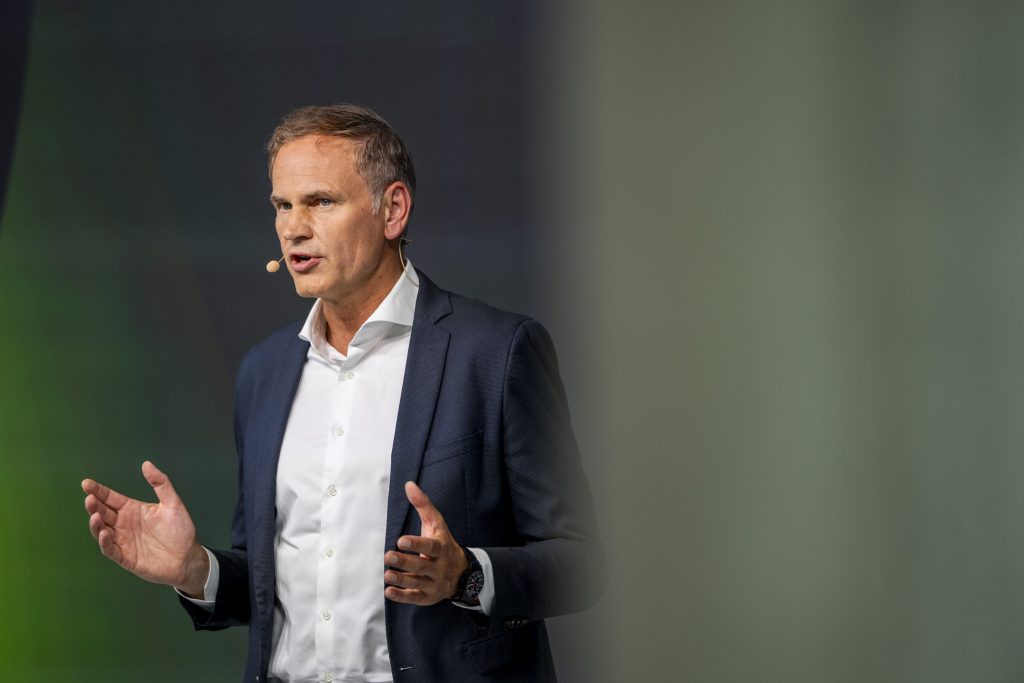
Ok, I got VW CEO in there. Again, same guy (for now).
The European car industry in general, and the German one specifically, has had quite a shift over the last decade or so. In the wake of Dieselgate–the revelation that German automakers (especially VW) were cheating emissions tests in order to sell diesel cars and trucks that weren’t as clean as advertised–companies (especially VW) made a hard shift into electrification.
They could afford it, mostly because of years of joint ventures in China printing cash, and Americans buying Porsches and Audis like freakin’ Labubus.
High on this cash, and presuming that it would exist forever, these automakers made a lot of bad decisions. The French and Italian automakers entered into or expanded questionable partnerships (Stellantis and Nissan Renault). The German brands tried to copy Tesla, poorly, and built a generation of electric cars that were not competitive enough in the right ways. At the same time, the German execs didn’t foresee the negative impact of a Trump presidency on global trade norms, nor being replaced in China by local automakers at the high-end of the market (and the low-end, and the middle-end…)
This week was all about fixing those problems, just as Chinese brands start building more cars in Europe. Tesla is in a weakened state, and the three major German automakers had their specific Hail Mary plays. VW has its ID. Cross, BMW is pinning its hopes on the iX3, and Mercedes wants people to buy the Miss Piggy-faced GLC EV.
That’s a start, but it’s going to take time. At one point, Volkswagen Group was hoping to make a 20% margin on Porsche by now. That ain’t happening, as Blume said at the big German car show this week.
Prices and profits in key market China are in decline, demand is tepid in Europe and U.S. tariffs have created an uncertain outlook, putting the focus on cost-cutting as the global market is reshaped.
“The party we have been celebrating in the automotive industry for decades is over in its current form,” said Oliver Blume, CEO of both Volkswagen, Europe’s biggest carmaker, and its luxury division Porsche AG.
“Now it is about reorientation.”
And from Manager Magazin:
The VW subsidiary, like no other manufacturer, is in a “sandwich position” between the US and China, whose markets together account for more than 60 percent of Porsche sales. According to Blume, the luxury market in China, which is relevant for Porsche, has shrunk by more than 80 percent in a very short period of time. In the US, tariffs currently at 27.5 percent are also weighing on business.
However, Blume expressed more confidence about the future. He described the current 2025 fiscal year as an “absolute low point” that would be used for necessary restructuring. Starting next year, things should then pick up again. A return to double-digit profitability is possible for Porsche. Should the general conditions change in the future, the original target of 20 percent is also conceivable. Porsche has launched a completely new product portfolio and is working with performance programs to counteract the negative trend.
Volkswagen needs North America and China, but a little relief in Europe would be welcome.
Relief In Europe Is Coming For European Automakers, At Least

European automakers, especially of the lederhosen-wearing variety, are hoping that the EU will reverse or soften the requirement that all cars be emissions-free by 2035. The biggest voting bloc in the EU is Germany (96 seats), so what the German Chancellor says is important.
And, according to Bloomberg, he’s signalling some openness to something:
Chancellor Friedrich Merz called for more regulatory flexibility from the European Union, throwing his weight behind the German auto industry’s push to soften rules that would effectively ban combustion engine vehicles in 10 years.
The conservative leader stopped short of calling for the 2035 deadline for selling only emission-free vehicles to be delayed or scrapped — something that some members of his bloc have been agitating for. Instead, he reiterated his coalition government’s support for “technology openness,” a reference to the auto sector’s desire for hybrid and other vehicles to be exempted from the rules.
“We are, of course, fundamentally committed to the transition to e-mobility,” Merz said Tuesday in a speech at the Munich auto show. “But we need more flexibility in regulation.”
“We need smart, reliable, flexible European regulation,” he added. “One-sided political commitments to specific technologies are the wrong economic policy path, and not just for this sector.”
Hybrids? More hybrids! EREVs! The EU needs to do something because German automakers are being buffeted from all directions, as Blume notes, and can’t fix everything simultaneously. Unless solid-state batteries can start rolling out at a huge clip and quickly, the next five years are going to be tough for European automakers.
Mercedes may be the worst off under the current regime, given its inability to make popular EVs.
Toyota To Shift Lexus ES Production Back To Japan
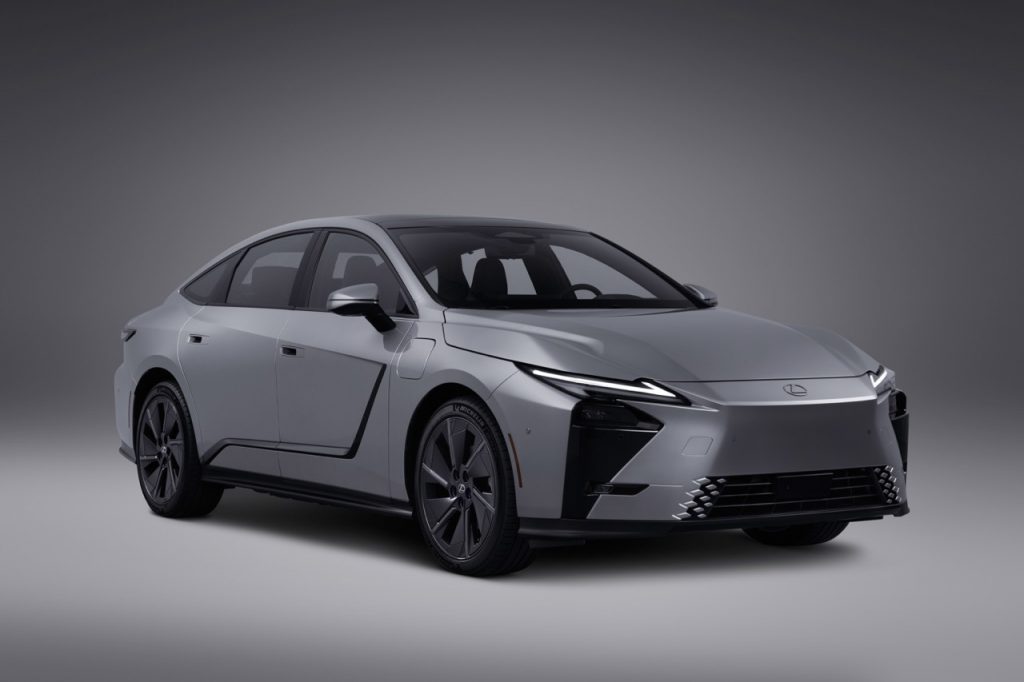
One of the ideas behind the tariffs was that the United States wanted more production here locally, but it’s unreasonable to expect countries to give up all their jobs and ship them to another country (that is, to some degree, what the US did during the China Shock period, and look how that turned out).
So the question becomes: what do you produce, and where do you produce it? It’s hard to build cheap cars abroad and import them here with higher tariffs in place, which means it probably makes sense to build your most expensive cars elsewhere and just pass the cost onto the consumer, assuming that everyone else you compete with will have to do the same.
That’s what seems to be happening with Toyota. Nikkei Asia is reporting that Toyota is going to stop making the Lexus ES in the United States and shift all Lexus production in the United States to a single plant.
Why?
Demand for hybrid vehicles is rising, even as the growth of electric vehicles in the U.S. has slowed. The Kentucky plant mostly turns out hybrid Camry sedans and RAV4 SUVs, which are strong sellers in the U.S. After ending production of the Lexus, the plant will increase production of hybrids.
A change in U.S. tariff policy is behind Toyota’s decision to tweak its manufacturing in the U.S. In April, the Trump administration imposed a 25% tariff on imported cars, although the rate will drop to 15% for Japanese vehicles and auto parts based on an executive order issued by Trump on Thursday. That is still many times higher than the 2.5% duty that applied to imported cars before. The change has forced Japanese automakers to grapple with the higher cost of exporting to the U.S.
Expecting the high U.S. tariffs to remain in force over the long term, Toyota intends to continue increasing production of vehicles in the U.S. However, building new plants there is likely to eat into the company’s earnings due to higher labor costs and material prices. Toyota concluded that it can earn a profit from Lexus models because of their high unit prices, even if they are exported from Japan.
Americans will buy as many Toyota hybrids as Toyota will build, so keeping those costs as reasonable as possible while tacking on a bit of price hike to the new Lexus ES seems like a decent strategy.
Stellantis Chair To Do Community Service To Settle Tax Issue
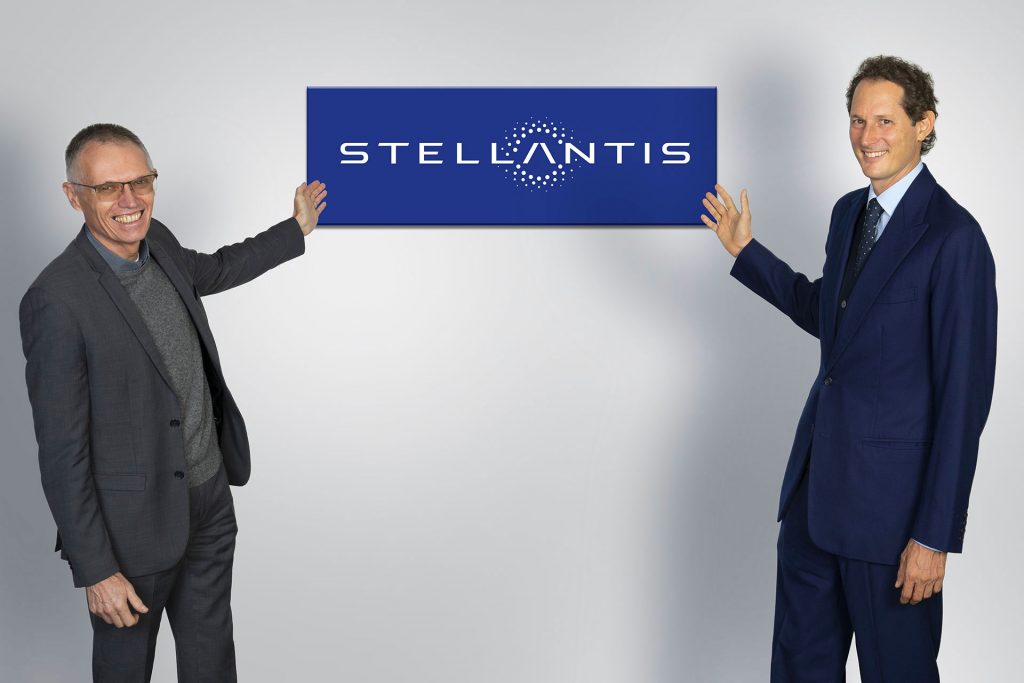
Exor, if you’re not aware, is the company set up by the Agnelli family to sit above all of its investments, including in automakers Ferrari and Stellantis. Exor is now run by John Elkann, who is also the Chairman of Stellantis.
Elkann and his siblings were set to inherit a significant amount of money from their grandmother, but they claimed that money in Switzerland, allegedly to avoid Italy’s inheritance tax. The issue is on its way to being resolved, with the Elkanns paying a substantial penalty and John Elkann agreeing to community service.
According to Reuters, what he’s doing hasn’t been resolved yet:
The payment of the 183 million euros closes all investigations into evasion of taxes on an estate estimated by the Italian authorities to be worth around 800 million euros.
Elkann will now have to propose to the judicial authorities an institution where he can perform his community service.
This could be a center for the elderly, an association that helps drug addicts, or some other institution with a similar social-support function.
As you can see in the photo above, taken with an unnamed gentleman, Elkann already has experience with the former.
What I’m Listening To While Writing TMD
Is it weird that my favorite Vampire Weekend song might be the Japanese-only song “Houston Dubai” from the extended edition of “Father of the Bride?” It just rings true to me. There’s also the fun vagueness of the lyrics:
Houston just did ninety-nine
Dubai’s one-eighteen
I think this lyric is either about the price of a barrel of oil or the temperature. Or both!
The Big Question
Which German brand is in the worst shape?
Top photo: Porsche

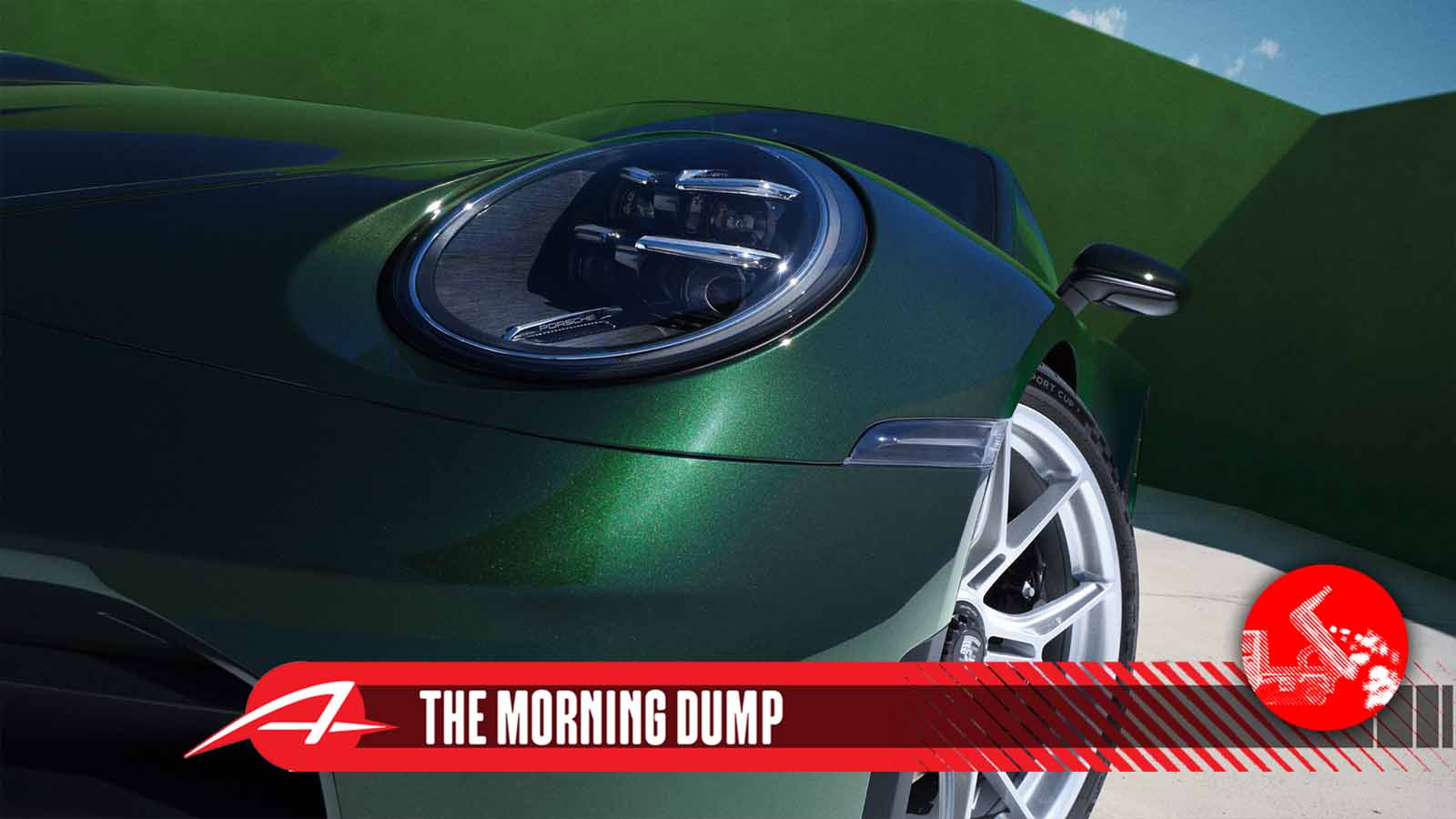




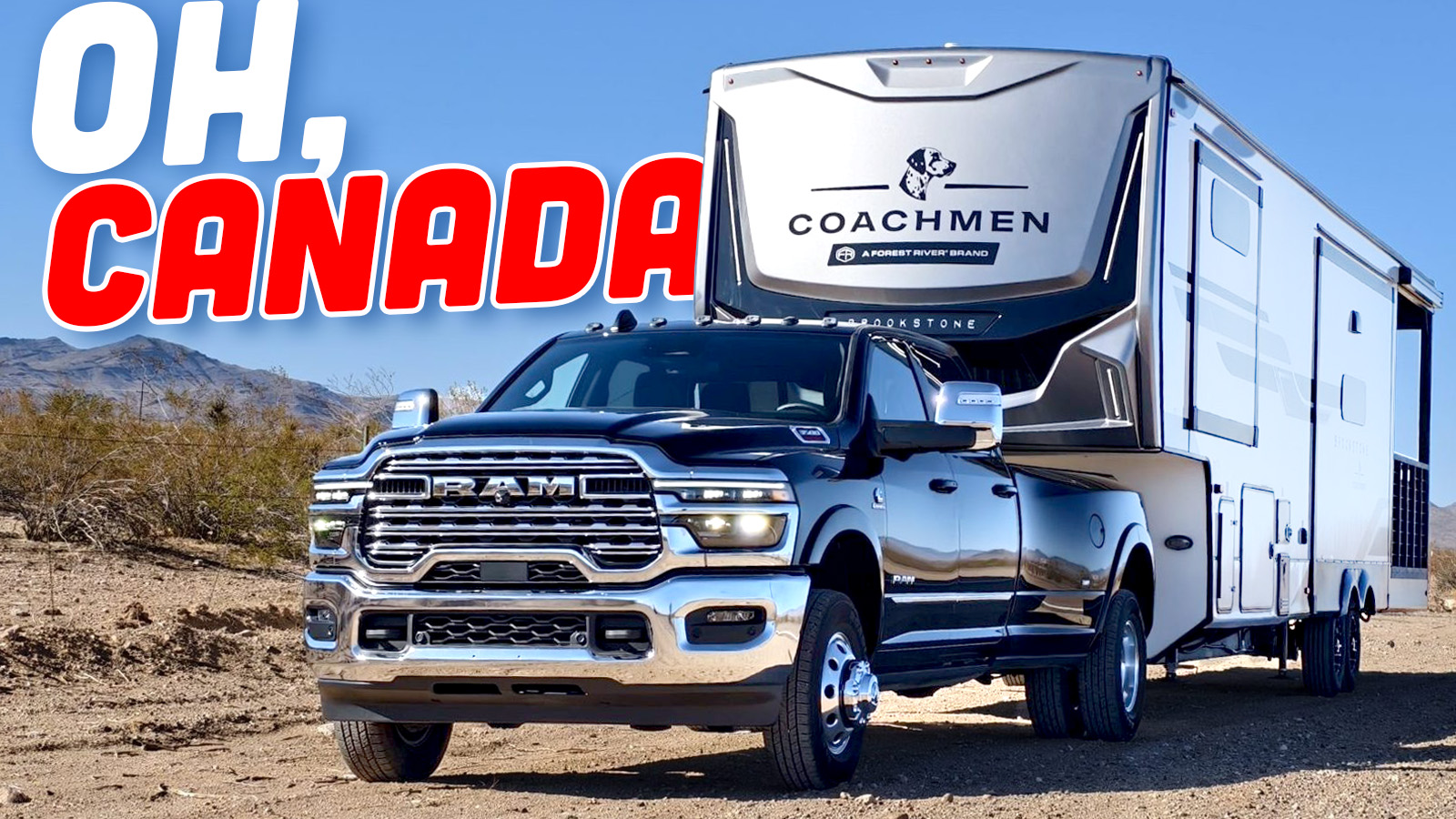
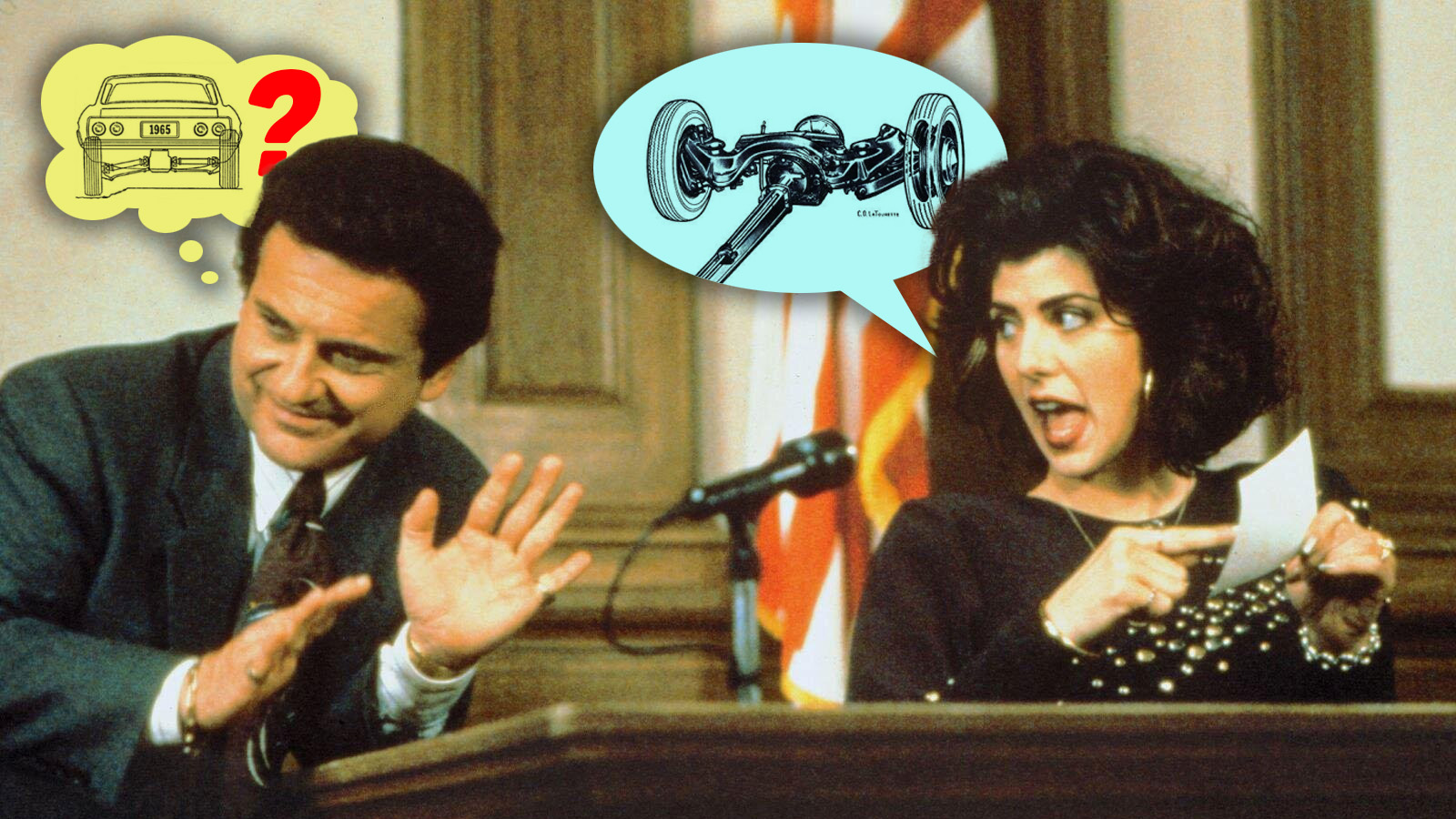
I feel like working the service desk at a CDJR dealer is fitting.
Shout out for rowdy roddy proper picture being used again.
I’d say VW is in the worst spot or most to lose, Porsche sounds rough too but they share their “non-Porsche” platforms with Audi and VW, like not the sports cars. But VW has just not had a hit lately.
Toyota eats its lunch here, they have zero hybrids here too, the ID.Buzz was a miss, could’ve made bank on a Golf or Beetle EV, heck I still ponder getting an egolf with half the range of my Bolt for better handling.
They made a video basically as a funeral for the Beetle, like seriously? Do they understand marketing at all? Their most instantly recognizable model that could easily be an upcharged EV but still less than the $80k of the Buzz and they’re like nope, never making it again, here’s van that almost gets 200 miles of range, idiots.
it’s remarkable how stupid some of these auto execs are.
Just an absolute lack of knowledge about what not-obscenely-wealthy people want or need.
Since you didn’t specify an auto manufacturer, I’d say either Bosch or ZF are in pretty rough shape these days.
Which is a shame, because one makes great transmissions, and the other makes great appliances to wash those transmission bits in when your spouse is away.
I think Bosch will be okay such a giant ass company with their hands in so many different sectors. Where I work they make some control units for our vehicles.
ZF on the other hand yeah not good for them.
Good for Toyota, I completely understand why they were building some Lexus products here (and in Canada) but if I buy a Lexus part of the reason is at least the perception of the utmost meticulous care and precision in the assembly process and envisioning a phalanx of white-smocked Japanese craftsmen that have been working toward getting promoted to the Lexus assembly line for decades. If someone’s buying a Lexus purely on price, well, then those are the exact customers that are cheapening the brand for those that buy it because they want it and can afford it.
This is the same reason that I can’t fathom purchasing a Porsche that wasn’t built in Germany (yes I know many of the SUVs are already built in Eastern Europe which is fine and perhaps does well to separate them in that case) and certainly not one built in the U.S. The same goes for Audi for sone reason. It just makes them less desirable overall and them opening plants over here would be, in my estimation, a misguided move based on short-term thinking. Sell what you can here and redouble your efforts in other markets.
The same goes the other way though, I wouldn’t want a Corvette that wasn’t built in Bowling Green (or at least somewhere else in the U.S.), I can’t even conceive of owning a Corvette that was built in Mexico for example.
“Envisioning a phalanx of white-smocked Japanese craftsmen that have been working toward getting promoted”
I HAVE THE FLU.
I’VE BEEN WORKING WITH A SHATTERED PELVIS FOR THREE WEEKS.
(laughs turn to coughing)
I’ve been in the Cambridge assembly facility. It’s absolutely built to high standards by diligent workers. They should be proud. Just don’t blame the Canadians for the awful styling.
Which German brand is in the worst shape? I’ll go with all of them. Between tariffs, poor management, Chinese expansion into Europe, and ridiculous features next to no one wants (subscriptions, MS Teams integration in a car?!?!), they’re all screwing themselves.
People around here are running around in golf carts and side-by-sides. I think the automobile companies (and not just the Germans) have forgotten what most people use their cars for – basic transportation. I don’t need self driving to take me to the grocery store, nor do I need the car being able to sense my mood and adjust the lighting accordingly. Nor do I need a $60,000+ vehicle to make that trip.
Okay, screed over. Done yelling at the clouds for the moment.
60,000 is getting on the low side of car prices these days.
Well, I did add that little plus sign there… 🙂
Ah, haven’t seen VW Factory Worker Photo in awhile, almost as old a friend as Carlos Tavares (not pictured above).
I think the Lexus move is smart, onshore the high demand, lower margin vehicles that the middle class actually buys. Import the luxury items, heck – imported from Japan was a selling point on the original LS400.
Mercedes is in a world of hurt. As a child, they built bank vaults on wheels. Now?
Word has it in Euroland that Blume better make a decision soon to either be CEO of VW or Porsche and not try and run both at the same time as cracks are forming in both companies. Porsche has made a series of misteps and quality is slipping a bit as well. The way they treated the Chinese market as the golden cash cow was a serious mistake. What were they earmarking production for China, 40%? Ferrari dealt with China by only allowing 10% of production to go to China and limited their financial liability on the dealer network. Porsche has already lost the French market for ICE vehicles as the models they do have available are far to dirty and are effectively prices out from From France due to excessive penalities. Of course, I lay great import on this as I want Porsche to make a small, light weight, 2 seater with small ICE of Hybrid powerploant and an eyecatching price tag that screams “BUY ME NOW”. After reading what I just wrote, I realize I really don’t know what I am talking about but wht the hell *shrug* post it anyway. 😉
This is also my dream Porsche.
Get a simple, back to basics, sports car at a fair price that can go head to head with a Miata or the equivalent. I don’t need a 200+ mph Halo car.
Sorry, this is like thinking Ferrari would make a Corvette competitor. This is as likely as you winning the next three Powerball jackpots.
Even worse, I don’t even play the lottery! I know it’s wishful thinking.
Oh! You have heard of me! Lucky Eddie Three Finger Bang!!! I am HUGE in Japan!
Don’t underestimate the engineers in Stuttgart
(I won’t mention the killers of dreams in the executive suite though)
Don’t let your dreams be dreams. The Boxster is calling!
I probably want a Cayman, just for the roof. I have been eyeing them pretty intently.
“I want Porsche to make a small, light weight, 2 seater with small ICE of Hybrid powerploant and an eyecatching price tag that screams ‘BUY ME NOW’.”
They did, it’s called the Boxster, and you can buy one any day of the week for Miata money
Checks Porsche website… 404 Boxster not found.
Sorry, I forgot to mention they made it 25 years ago
Yeah, I think this highlights the current issues pretty succinctly; also thought my swiss cheese memory was getting worse.
It’s already public Blume will focus on VW and give up the Porsche Role
Isn’t it the most American thing in the world to believe that a new car will solve everything? If you drive long distances and lots of miles per year, an EV might be worthwhile. If you don’t, EVs don’t pencil out. You just become a lithium hoarder.
The numerical analysis I’d like to see is the relative environmental benefit of owning an EV vs. investing the same cost into renewable energy production. Solar PV panels work all day, unlike private automobiles. It’s not a glamorous investment- no chrome, no widescreen, no snappy acceleration, but it just sits there working and producing electricity since 2007. That’s my contribution…
Why not both?
If everything is a priority, nothing is
Huh?
I have solar and an EV. The solar came years before the EV. It’s a great combo.
Assuming someone as money for both things, is kind of an ASS move
“relative environmental benefit of owning an EV vs. investing the same cost”
Reading comprehension skills need improving.
You are assuming that people get solar and an EV at the same time. That’s false. I got solar 6 years before getting the EV. Or people go the other way around. But it’s rarely both at once in my experience.
Sorry you live some place that doesn’t offer incentives for either. I’d much rather my tax dollars go to supporting clean energy development than dirty-burning and expensive to make cleaner fossil fuels.
Anyhow, I’m choosing to ignore your personal attack so maybe we can have a conversation.
Getting PV is making much more of an impact unless you drive 100k miles per year
ZF. They are not doing good.
Zey Fucked, proper fucked, as Zee Germans would say.
Porsche is in an enviable position and could sit back and do nothing; passing on another price increase to Americans for 911s whilst the rest of the world looks on. It does mean that the American market won’t see a new Cayman/Boxter.
But, in any event, if I were a global automaker, I’d just be nudging production around existing plants, like Toyota – knowing that in a week/month/year that the landscape will have changed a few times.
Porsche’s sales haven’t been doing well as of late. They can probably keep increasing 911 prices in perpetuity but they need some volume models. The current Cayenne is ancient, the EV Macan is overpriced and not that great, and replacements for both of those models are taking their sweet time.
They need a tiny Porsche for the people!
They could partner with Smart, GIVE US THE SMORSCHE.
914 Erev I don’t need no stinking trunk.
“Which German brand is in the worst shape?”
Opel because Stellantis is a mess.
Maybe a HEMI could fix Opel.
And if not HEMI, then Fratzonic… LOL
Trabant, they made the factory into a mall and now the mall’s dead.
… Opel? They’re run by Stellanis nowadays. I assume they’re doing the worst.
German company? Mmmm… Mauser. They are already super-expensive (though fairly high-end), but started to trade more on their history than they should, based on price. They don’t move many of these rifles in the US because there are sporting rifles with as good or better specs costing thousands less. And now a tariff?
Not looking good for Mauser.
It’s not even the original Mauser anyways hah
send Elkann to jail making license plates, that would be hilarious. Tavares can join
Plate would read “NOTPCTR”
He should go to jail for pushing for FCA to merge with someone. He’s the one responsible for turning Sergio into Mergio.
I read the headline and was hoping this would be the song https://youtu.be/NZBJQQSxXHI?si=QJFVTHNWOdWmpEWt
Your question did not contain the word “car” so I’m going with Der Spiegel . Printed material seems to be on the way out.
VW worker is back! I hope he’s doing well!
I was originally thinking it would be Zündapp – they haven’t released a new model in 40 years – but by most measures DKW is doing worse.
DKW just rebranded to Audi when they went 4-stroke.
I see VW breaking up and selling them off to stay alive. MB isn’t far behind, they used to have a great line up. Now, not so much.
Opel?
I was just in Germany last week and you see quite a few Opels. Good looking cars and they do have scoot to them!
All of them are in a big ol’ pot set to simmer. Porsche is small enough it can swallow a potential failure in an all EV 718. But VW and Mercedes’s goose is cooked if their EV plans fail.
Wouldn’t it be funny if the EU breaks up in the next few years and the current zero emissions plans are pushed aside and it is business as usual?
It’s probably VW, because their mass market price point is most sensitive to tariffs.
The luxury brands can hide increases, at least to an extent.
That said, Mercedes’ lineup is as weak as I can remember in my lifetime, and the ideas they’re putting out there ($100,000 mini G crossover, MS Teams integration, etc) aren’t giving me a lot of confidence that they have a turnaround coming.
My America-poisoned brain can’t fathom a reality in which a rich person is not only penalized for dodging taxes but is legally required to do an act of social charity to make up for having done so.
Also I hate to say it, but VW may be cooked. I don’t think they’ll ever go away, but their sales are going to continue to tank unless they can figure out how to successfully compete with China. It feels like BMW is starting to get it, but VW seems totally lost.
Id buzz. 65000+. The weed they have over there must be amazing. So stoned you don’t notice the ride is over in 200 miles. Excuse me 321.87 kilometers
Worst shape? Probably VW because they build the fewest portion of their US-bound portfolio within the US. I haven’t looked at the numbers in a couple years because it’s hard to crunch (totals are easy, intended market is harder).
This isn’t an implication on their products, I think they’ve got a great portfolio — but decades of reliance on Mexico has turned a great idea (co-continental location, affordable labor) into a bad one almost overnight, through no fault of their own.